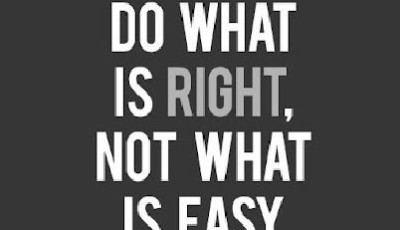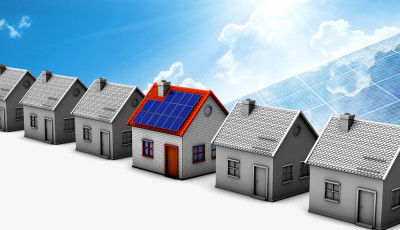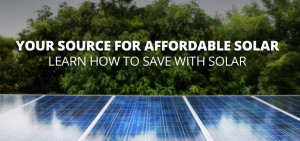Residential Solar Leasing, The No Cost Solar Option
Buying vs. leasing, it’s a decision almost everyone makes at some time in their lives. Be it a car, a home, or even a solar energy system.
So what is solar leasing? As with any lease, you do not own the solar energy system attached to your home. Instead of using the energy generated by the system, you purchase your electricity from the company who owns the panels attached to your roof. Generally, this purchase is at a reduced rate from the local utility company. Solar leasing contracts are for a specific amount of time – most often 15 to 20 years. Some contracts will allow purchase of the system at the end of the lease.
As of the writing of this article the following States allow residential solar leasing:
|
|
As laws change, please consult your State Energy Department for current regulations.
Leasing continues to gain market share. In March 2014, SolarCity and Best Buy announced a partnership which will allow for low-cost solar energy installations through a leasing arrangement. Due to regulations, this program is currently available only in California, Arizona, Hawaii, Oregon, and New York.
There are advantages to leasing a residential solar energy system. They include:
- A leased system is much less expensive to install. In fact, often (based on current tax credits and rebate programs) a system can be installed on your roof for close to zero dollars. This is a huge benefit for those homeowners who don’t have the cash, credit, or equity in their homes to purchase a system.
- Zero maintenance costs. Most leases include all maintenance and repairs of the system for the life of the lease.
- Reduction in electricity charges. Even though you are paying for the electricity produced by the system on your home, you are purchasing the electricity through the solar leasing company instead of your local utility. Generally those rates are below market level and most leases will let you lock that rate for a number of years, safeguarding you from rising utility rates.
- You can go green without having to spend your cash up front.
There are also disadvantages to leasing a residential solar energy system. They include:
- When leasing a residential system, generally you will not qualify for the federal tax credits, State tax incentives and any cash rebates that may be offered. These instead go to the leasing company.
- A solar lease is attached to your home and in the event of a sale; the lease will transfer to the new home owner. This could make your home less attractive to buyers. In the alternative many leases will allow you to “buy-out” the remaining portion of the lease and have the panels removed from your home.
- A lease keeps you on the grid and keeps you paying for your electricity (albeit at a discounted rate) on a monthly basis. Chances are you will not save as much on a monthly basis as you would if you owned the system.
The Climate Policy Initiative recently conducted a study that found that solar panel leasing, in California, had risen to 75 percent of installations in 2012. The study concluded that as tax incentives diminish, leasing becomes more popular than owning.
With Federal incentives for solar slated to end in 2016, the market for leasing should continue to increase. Solar leasing is a win for the environment. It is also leading the way in customer service – giving customers what they are demanding. The question is – is solar leasing right for you? Click here and find out, it only takes 30 seconds.




